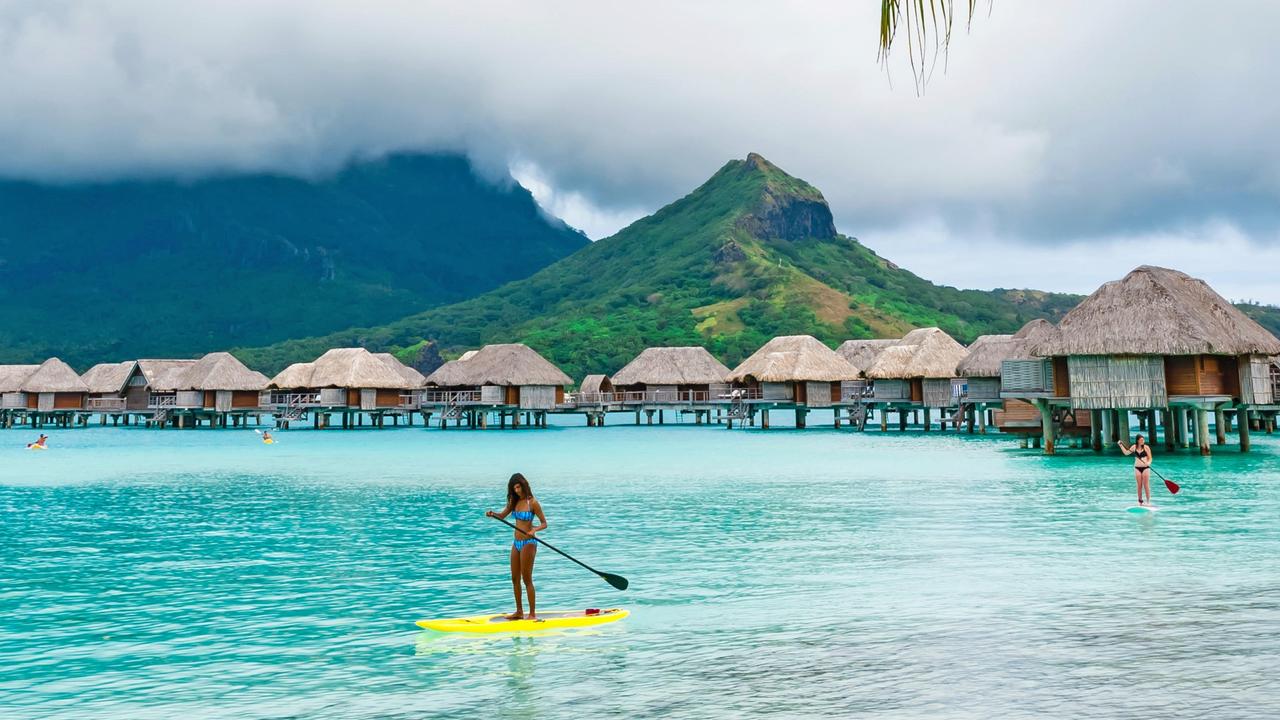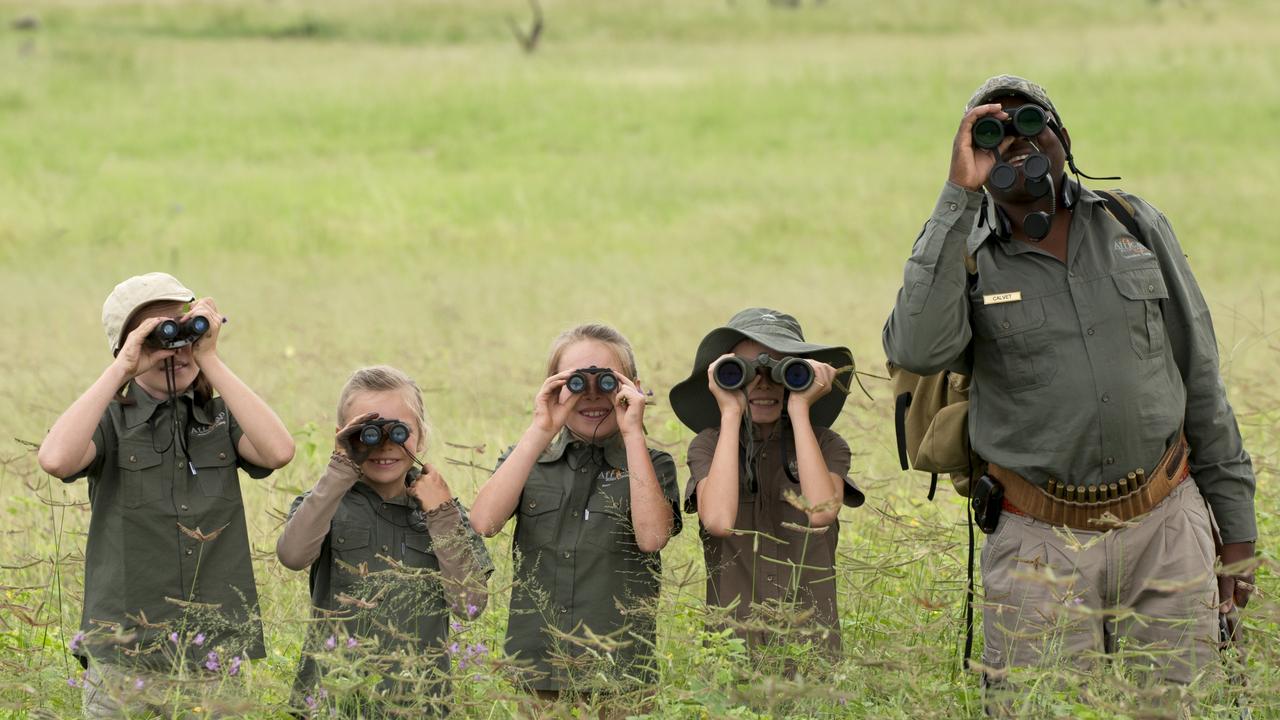Cheat Sheet: 21 things to know before you go to Fiji
Should you try kava? Should you get your kid’s hair braided? Here are all the questions you’ll need the answers to before a Fiji holiday.
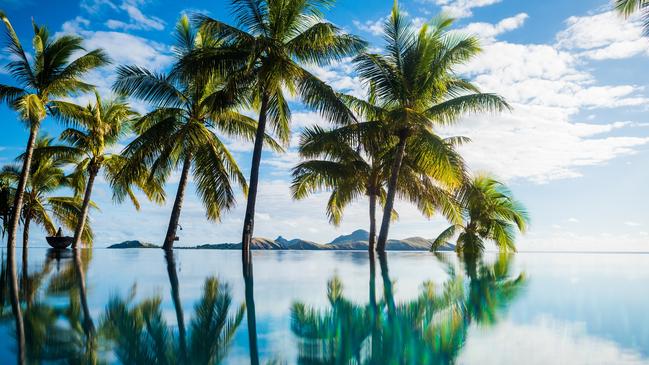
Holiday Ideas
Don't miss out on the headlines from Holiday Ideas. Followed categories will be added to My News.
Families, honeymooners, groups of friends — Fiji has something for everyone to love.
GETTING THERE
It’s about four hours from Sydney to Nadi (pronounced Nandi), home to the country’s international airport on the country’s largest island, Viti Levu. There are direct flights from Brisbane and Sydney daily, Melbourne six times a week and two a week from Adelaide flying Qantas, Fiji Airways, Virgin Australia and Jetstar.
The flight is an hour longer on the way home. There’s only a two-hour time difference between Fiji and Australia, great for young families.
If you’re going to an island, the flights can land too late for you to get the boat transfer across from the mainland the same day. You can either pay for a helicopter (which can be $1200 for a family of four), or spend a night on the mainland to get the first boat the next morning.
FIJI ISLANDS TOURISTS HAVEN’T FOUND YET
12 THINGS THAT ONLY HAPPEN IN FIJI
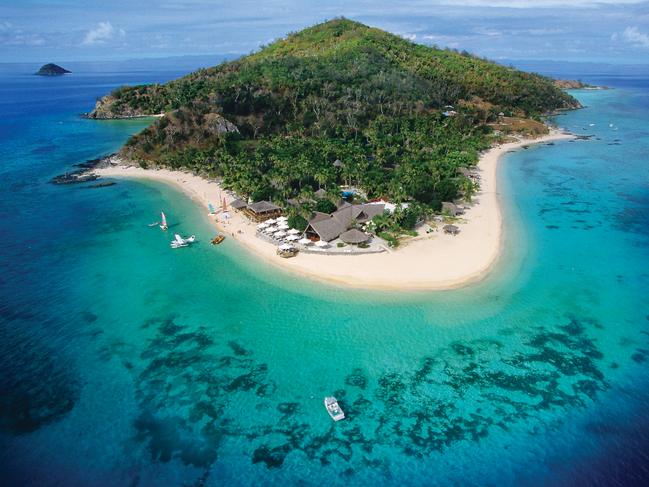
THE BEST TIME TO GO IS
All year round. While there is a wet and dry season, being a tropical climate, “wet” normally means an afternoon shower, which is a welcome reprieve from the heat. The wet season is November to March with average temperatures around 30C, and the dry season is from May to September, which means it’s not as humid during the day and can be cooler at night. The best time to visit is October and November — out of school holidays to avoid the crowds, and with perfect weather.
BULA, VINAKA
Bula literally means “life” and is used to say hello, welcome, goodbye and love. Vinaka is Fijian for thank you, and both words are contagious. Everyone is so friendly you’ll be saying these at every interaction, so teach the kids before you go.
GETTING TO THE ISLANDS
The Mamanucas are closest to the mainland — think Malolo, Treasure, Vomo, Tokoriki, Mana, Beachcomber, Plantation and Castaway. The water is crystal clear, sand white as snow and scenery pretty as a picture. Access to the outer islands of Fiji is not difficult at all. Domestic flights go daily to Taveuni and Vanua Levu from Nadi Airport. Alternatively, if visitors wish to hop over to the Mamanucas, they can take a short 25-minute drive to Port Denarau where boat services are available, or resorts such as Likuliku or Six Senses offer a speedboat pick up. The outer Yasawa Islands are a two- to three-hour boat journey, or you can take a seaplane.
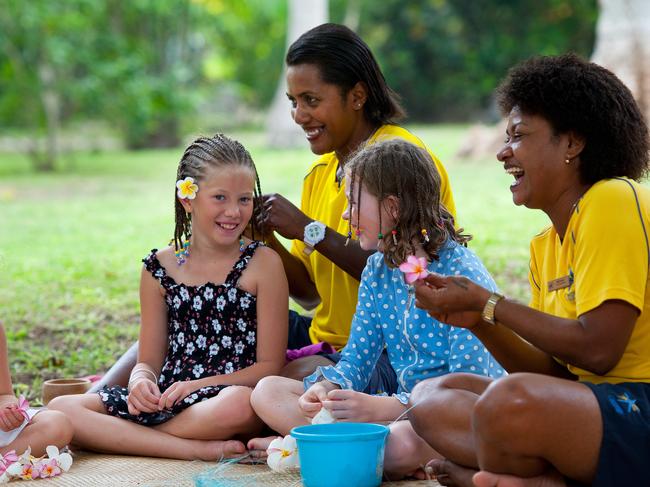
THERE ARE 333 ISLANDS TO CHOOSE FROM
And you can’t go wrong, with endless exploring and island hopping to be done. But there are a number of resorts on the mainland that are easy for young families — the InterContinental at Natadola Bay is on a picturesque beach, and the Sheraton Villas, Westin and Radisson Blu Resorts can be found at nearby Denarau. The Coral Coast is also a popular destination due to its easy location.
DAY TRIPPERS UNITE
Companies like Captain Cook Cruises and Blue Lagoon offer snorkelling day trips to the islands, or book a cabana at Malamala Beach Club — only a 25-minute boat transfer away from Denarau Port.
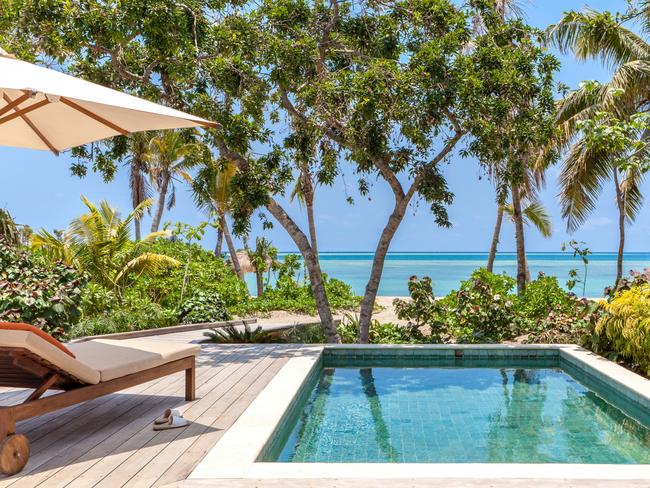
SNORKELLING IS A MUST
All resorts have snorkel sets and many offer complimentary snorkelling excursions daily — take advantage of them. Gliding through such crystal clear water with incredible marine life and living coral is a real treat.
YOU MAY SEE A SHARK
But it’s OK — they are mostly small reef sharks you’ll see while snorkelling the reefs. They are majestic to watch and shouldn’t cause alarm.
BRAIDS ARE CUSTOMARY
Your children may come home with braids in their hair — many local resorts do them for free in kids’ club. It makes life easier when you’re away, but coming home they can be hard to get out so you may like to opt for two or three instead of their whole heads.
CHURCH IS MAGIC
Even if you’re not religious, attending a Sunday church service in a local village is an experience you’ll never forget. The singing is out of this world and will give you goose bumps and a fantastic insight into traditional life in Fiji.
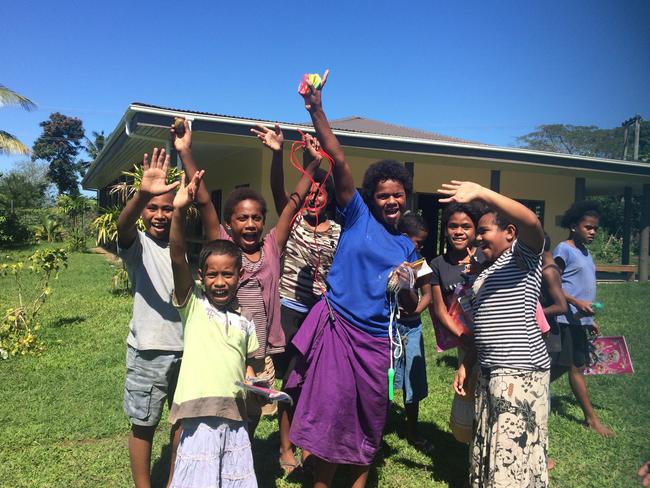
VISITING A LOCAL SCHOOL
Is a must. The kids are gorgeous and the teachers passionate. It’s a nice idea to bring some books, toys or stationery from home as a gift on your visit.
THE FIJIAN DOLLAR
Equates to about 65c — so if a cocktail is $28 Fijian, you’re looking at about $18 Aussie — but most resorts charge everything to your room, and on check out you can settle the bill in Australian or Fijian dollars. If visiting a local village, they normally have stalls set up along the beachfront selling their wares. Before you go, ask your hotel for some local currency (just put it on your room account) so you can buy a souvenir. Tribal elders will also expect a tip when you enter their village, normally given in exchange for a traditional kava ceremony to celebrate your welcome.
KAVA IS PART OF THE FUN
Kava is a crop native to the Pacific Islands and used as a ceremonial drink, known to have sedative-type effects — but taking part is showing respect to the village and its elders. So drink up!
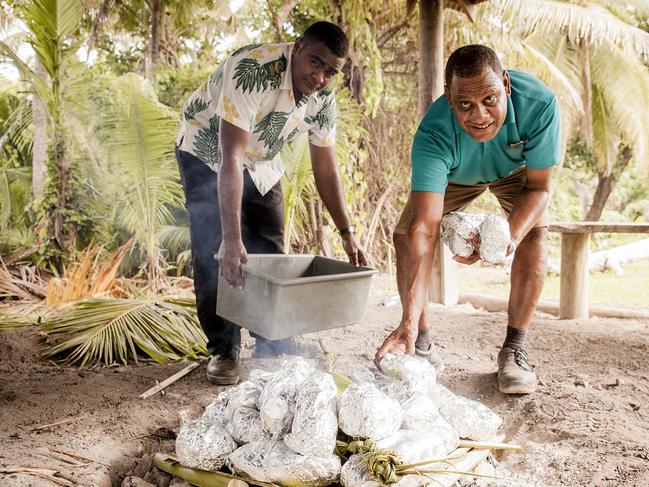
LOVE THE LOVO
A lovo is a traditional way of cooking meat in the earth — like a hangi in New Zealand. The taste is like a smoky barbecue, and it’s a way villagers cooked a large amount of meat, chicken and vegetables at one time. Most resorts will offer a traditional Fijian night every week, showing off their lovo skills.
FOOD IS GETTING BETTER
Fiji hasn’t always been known for its food, but many hotels are now embracing the new food movement, making their resorts more self-sufficient and sustainable, and providing locals with opportunities. The Gaiatree Sanctuary offers an agritourism experience on the hilltop of Taveuni, taking you through their edible organic spice plantation which grows superfoods and local vegetables and fruits. At Malamala Beach Club, Aussie chef Lance Seeto cooks everything from scratch — down to the tomato sauce.
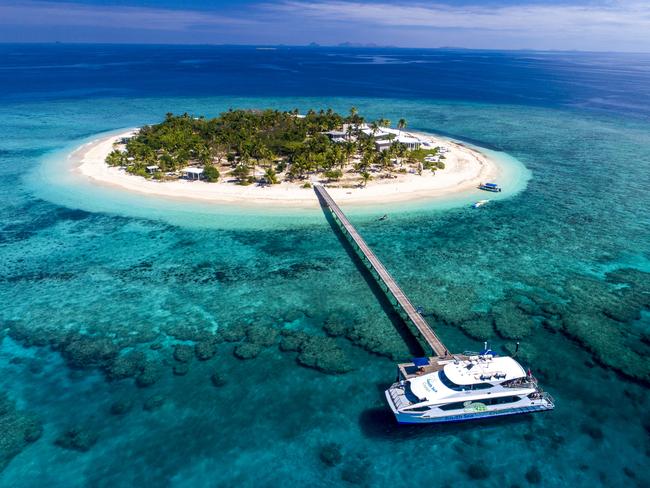
FIRE TWIRLERS ARE EVERYTHING
Fijian fire dancing is spectacular. Done at nightfall on the beach, traditional dancers will light up the sky with fire dancing, knife throwing, sometimes both at the same time. A great way to entertain the whole family.
KIDS CLUBS FOR THE WIN
Most resorts include kids clubs in their fees for children aged four and over. They will do fun activities like hermit crab racing, coconut painting, basket weaving, it won’t feel like babysitting at all, and it means a well earned break for parents.
NANNIES ARE READILY AVAILABLE
And cheap as chips. For younger kids, or babysitting at night-time, local nannies are provided by most resorts at just over $F10 per hour — converting to as little as $6.50 Aussie. If you make recurring bookings you normally get the same nanny, which makes leaving little ones all the easier.
THERE ARE ADULT-ONLY ISLANDS
If you’re looking for a child-free escape, look into Likuliku Lagoon Resort, Qamea Resort, Royal Davui Island Resort and Tokoriki Island Resort. But most resorts have adult-only pools, catering for those looking for a quiet, relaxing, kid-free stay — including the Hilton, Vomo, the Sofitel and InterContinental.
THERE’S ADVENTURE TOO
Talanoa Treks offer multi-day hiking tours inland and through villages. There are also waterfalls, world-class surfing, diving, quad bike tours and white-water rafting.
SUSTAINABILITY
Many hotels are adopting a no-plastic ethos, growing their own food in herb, veggie and fruit gardens, using local fisherman for fresh daily catch, and encourage eco-activities such as coral planting to help preserve marine life.
For more travel advice and inspiration sign up to Escape’s newsletter.
Originally published as Cheat Sheet: 21 things to know before you go to Fiji


